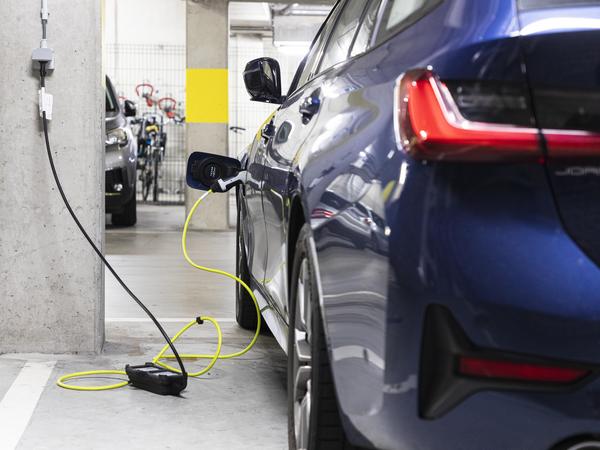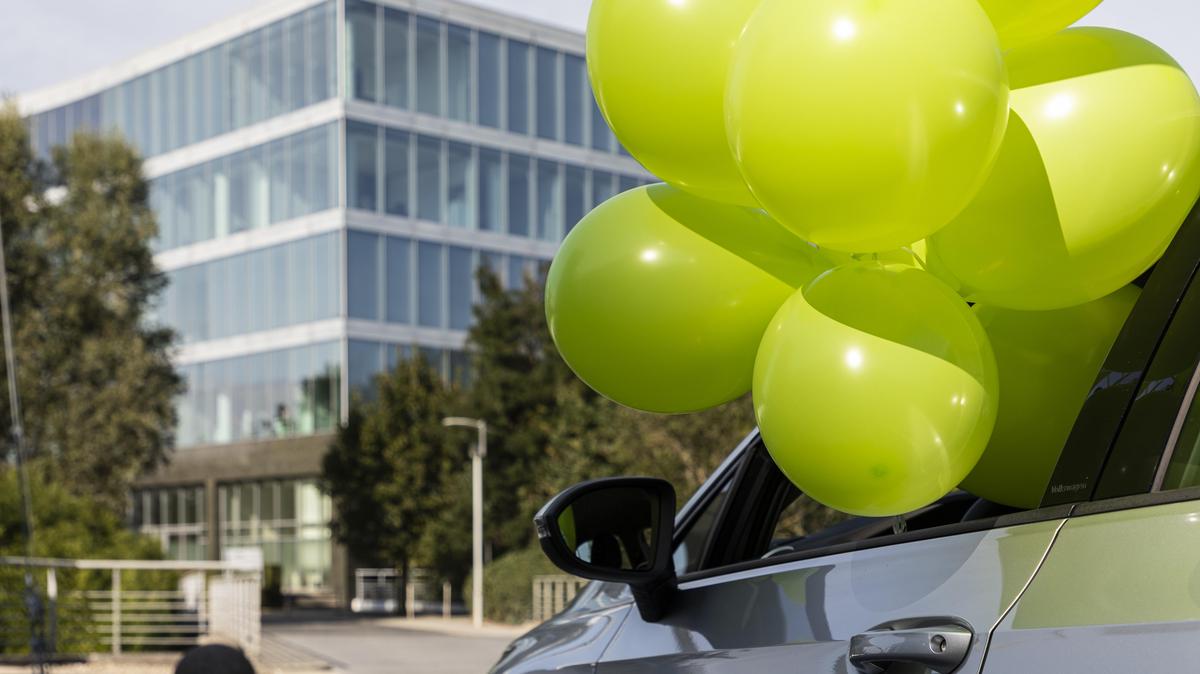Green mobility: what changes in terms of tax?
Sien Vandezande, Consultant, Melissa Claessens, Manager BDO Tax, International Mobility Services
UPDATE: 17/01/2023
By the end of 2021, the Belgian legislator has been focusing on the greening of the vehicle fleet. The outlines of the law are clear: only the costs for zero emission cars will still be tax deductible. Furthermore, the installation of charging stations provides the right to an investment deduction or tax reduction.

Tax deductibility of company car costs
The government will roll out a plan to progressively limit the tax deductibility on company cars. This will happen in 4 phases.
The tax deduction restriction applies to both corporate income tax (tax on non-residents) and to personal income tax. With regard to the latter, an exception applies to vehicles that were purchased no later than 31 December 2017. For these cars, a transitional period applies, during which at least 75% of the costs can be deducted.
The company cars targeted are all passenger cars (new or second-hand), cars for double use, vans, and false light commercial vehicles purchased (order form counts as date), rented or leased as from 1 July 2023. Light commercial vehicles and motorcycles are excluded from this scheme until further notice.
The 4 phases of the plan are:
Phase 1: ‘grandfathering’
For cars purchased before 1 July 2023, the current tax deduction regime (based on CO2 emissions) continues to apply. That is, the costs of the car that you or your company purchase(s) before 1 July 2023 will continue to be deductible to the same extent that they are today.
This means that the higher the CO2 emissions are, the lower the deductibility of the vehicle expenses will be. A hybrid car has lower CO2 emissions and thus has a tax advantage.
| Tax deduction as from 1/1/2020 | |||
|---|---|---|---|
| Car costs AND fuel costs | Formula: 120% – (0.5% x coefficient x CO2 emissions) | ||
| Coefficient | 1.00 for diesel vehicles | ||
| 0.95 for petrol vehicles | |||
| 0.90 for natural gas vehicles with engine > 12 HP | |||
| Maximum | 100% | ||
| Minimum | 50% | ||
| From 200 g/km CO2 | 40% | ||
| Interest | 100% | ||
Phase 2: ‘phase-out regulation’
For passenger cars (including hybrids) that run on fossil fuel (diesel, LPG, CNG or petrol) and are purchased between 1 July 2023 and 31 December 2025, a transitional arrangement applies, in which the tax deductibility for these cars will gradually decrease.
| Taxable period as from | Maximum deductible: |
|---|---|
| 1 January 2025 | 75% (and minimum 50%) |
| 1 January 2026 | 50% |
| 1 January 2027 | 25% |
| 1 January 2028 | 0% |
This does not mean that you can no longer purchase petrol or diesel cars – but the purchase will be less advantageous from a taxation point of view.
For hybrid cars purchased as from 1 January 2023, an additional deduction limit will apply. The deductibility of the fuel costs of a hybrid car will be limited to 50%. On the other hand, the electricity costs for hybrids remain deductible without an upper limit. In this way, the legislator wants to discourage the use of the combustion engine and stimulate the use of the electric motor. As from 2026, these measures will cease to apply, because the tax deductibility of the business expenses for non-emission-free company cars (purchased between 1 July 2023 and 31 December 2025) will in any case be limited to a maximum of 50% and will be systematically phased out.
Phase 3: fossil fuel vehicles purchased as from 1 January 2026
For cars purchased after 31 December 2025, which run (partly) on fossil fuel, the car costs can no longer be deducted for tax purposes.
Phase 4: zero emission cars purchased after 1 January 2027
Zero emission cars (cars that run on electricity or hydrogen) purchased before 1 January 2027 remain 100% tax deductible. As from 1 January 2031, the deduction will be limited to 67.5%. In the meantime, there will be a transitional regime in which the deductibility decreases gradually (see the table below).
| Date of purchase | Deductible lifelong at |
|---|---|
| before 1 January 2027 | 100% |
| 2027 | 95% |
| 2028 | 90% |
| 2029 | 82,5% |
| 2030 | 75% |
| 2031 | 67,5 |
General prohibition on deducting business expenses for CO2-emitting company cars
As from 1 January 2026, the general deduction prohibition will apply to all business expenses for company cars with CO2 emissions. Also, as a consequence, as from 1 January 2026, the taxpayer can no longer make use of the fixed deduction of €0.15/km for commuting costs. This fixed amount can only be applied for an:
- electric car
- other car (as transition) purchased before 1 July 2023 (‘grandfathering’: no impact due to transitional measure) or before 1 January 2026 (phase-out regulation: temporary limited deduction of 50% in 2026 and 25% in 2027).
Additional regulation – tax on legal entities
Associations subject to tax on legal entities or tax on non-residents are also additionally taxed on the amount of the non-deductible cost, similar to the aforementioned principles.
Impact of benefit-in-kind company cars
Currently, there is no change in the calculation of the benefit in kind for the free private use of the company car on which employees are taxed. The taxpayer may continue to use the more favourable NEDC value if the certificate of conformity states the NEDC value or the NEDC value and the WLTP value (free choice in case of double entry).

The new tax regime applies to all company cars purchased, rented or leased as from 1 July 2023.
Higher solidarity contributions
For fossil-fuel powered cars purchased from 1 July 2023 onwards, the solidarity contributions will increase by a factor of x2.25 (x2.75 as from 1 January 2025, x4 as from 1 January 2026, and x5.5 as from 1/1/2027). For zero-emission cars, the minimum amount applies, but this will gradually be increased.
Charging stations at home
Private individuals receive a tax reduction if they have a charging station or pole at home that uses green electricity installed between 1 September 2021 and 31 August 2024 and that can control the charging time and capacity (‘intelligent and controllable’). The tax reduction is limited to €1,500 (non-indexed) per charging station and per taxpayer. The costs for the mandatory inspection are also eligible for the reduction. In 2021 and 2022, the tax reduction will be 45%, falling to 30% in 2023 and 15% in 2024.
The station must be in place at the taxpayer’s residence (or tax residence) on 1 January of the assessment year (i.e., calendar year +1, thus not the time of the installation). Residence is understood to mean the (also new-build) owner-occupied home, the rented home, or the home under usufruct.
Charging stations at work
Companies investing in a publicly accessible charging station between 1 September 2021 and 31 March 2023 (e.g., a charging station in a freely accessible car park at supermarkets, offices, shopping centres, etc.) can claim – under certain conditions – a higher cost deduction of 200% or of 150% for purchases made between 1 April 2023 and 31 August 2024. In order to benefit from the cost deduction, the charging station must meet additional technical conditions and be registered with FPS Finance (www.eafo.eu).

Investment deduction ‘green’ truck and specific refuelling infrastructure
The government wants to stimulate the purchase of (new) carbon-emission-free trucks and the installation of a specific refuelling infrastructure. This is why there will be an investment deduction for zero carbon emission trucks, for the refuelling infrastructure for blue, green and turquoise hydrogen, and for the electric charging infrastructure.
Depending on the time of the investment, the investment deduction will be between 35% and 13.5%.
To compensate for the incentive in budgetary terms, the existing exemption from the special excise duty for professional diesel will be reduced. In this way, the legislator is seeking to encourage eco-friendly alternatives and discourage the use of fossil fuels.
Mobility budget
The law wants to make the mobility budget more accessible and extend the number of ‘green mobility’ expenditures in the second pillar for which the mobility budget can be used (bicycle loan, scooters, public transport pass for the family, pedestrian premium of €0.24/km, parking costs incurred while using public transport, capital repayment if a home is located within 10 km of work, etc.).
On the other hand, the ‘environmentally-friendly car’ that qualifies as an alternative to the current company car will have to be completely emission-free (instead of ‘greener’ than the current one) as from 2026. A minimum and maximum budget was also set.
Evaluation
By the end of April 2026, the government plans to evaluate the impact of the fiscal and social greening of mobility. The taxpayer will be asked to provide all necessary information. How this will be done is still to be set out in a Royal Decree.
As confirmed in the law published on 03/12/2021, support for the greening of mobility is growing noticeably. It can therefore already be interesting to consider the fact that the total cost of ownership of the (less) eco-friendly company car you offer to your employees could rise sharply. BDO can help you look for sustainable and alternative solutions to remunerate your employees without driving up costs.



















